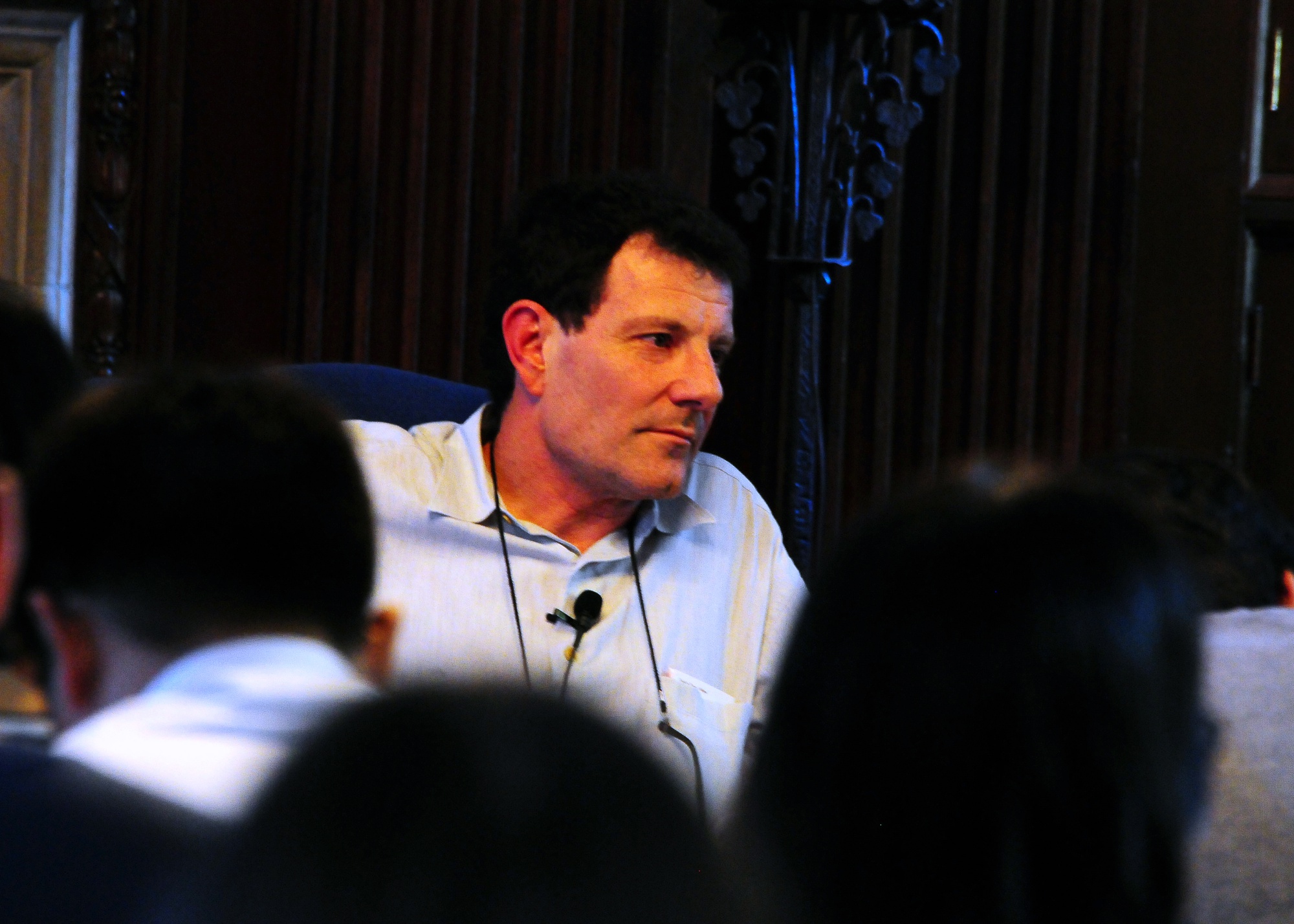
News
Pro-Palestine Encampment Represents First Major Test for Harvard President Alan Garber

News
Israeli PM Benjamin Netanyahu Condemns Antisemitism at U.S. Colleges Amid Encampment at Harvard

News
‘A Joke’: Nikole Hannah-Jones Says Harvard Should Spend More on Legacy of Slavery Initiative

News
Massachusetts ACLU Demands Harvard Reinstate PSC in Letter

News
LIVE UPDATES: Pro-Palestine Protesters Begin Encampment in Harvard Yard
New York Times Columnist Kristof Describes News Industry, Social Justice

Pulitzer Prize-winning journalist and columnist Nicholas D. Kristof ’81 shared his thoughts on the state of the news industry and gave advice for future humanitarian efforts to an audience of students and parents in Kirkland House Saturday afternoon.
“I am slightly intimidated about speaking at Harvard,” said Kristof, a former Crimson news editor. He recalled watching crowds of people passing through Harvard Yard when he was scheduled to give a speech on campus a few years ago, only to learn that Bill Clinton, too, was speaking that day.
His appearance on Saturday as part of the Conversations with Kirkland speaker series took the form of a question-and-answer session. Kristof, whose work focuses on social and economic problems around the world, fielded a variety of questions ranging from the role of the media in society to the allocation of humanitarian resources.
News sources have a growing tendency to conform to and affirm people’s points of views, Kristof said, a change that he attributed to greater political segregation in the American population. Kristof explained the merits of reading different works and considering opposing opinions on social and political issues.
“I work out not because I like it but because I think it makes me a better person,” Kristof said.
“I read the Wall Street Journal editorial page in the same spirit,” he added jokingly.
Subsequent conversation focused almost exclusively on social issues. When asked about how students can make an impact on the world, Kristof emphasized the use of evidence and randomized data collection to determine the value of social works.
For example, Kristof described the politicized solutions proposed in response to the AIDS epidemic in Africa. On one side, liberals proposed contraception, while conservatives believed abstinence was the cure, Kristof shared.
Ultimately, the most cost-effective option was neither, Kristof said. Providing training to young women and warning them of sexually interacting with much older males proved to be the most cost-effective preventative measure, according to Kristof.
Kristof also spoke about the importance of balancing humanitarian efforts internationally and at home.
“If you are trying to address various inequities and problems around the world, you get much more bang for the buck trying to save lives in Bangladesh than in the U.S.,” Kristof said. At the same time, however, he warned of ignoring poverty problems that exist locally.
Students at the event said they appreciated the advice Kristof had to offer about social justice and action.
“We are really fortunate to have had the opportunity to have him come here,” said Lily Ostrer ’14, a student organizer for Conversations with Kirkland. “He has obviously captured the attention of people all over the world, but particularly young people in this country about motivating them to action on issues of global justice."
Want to keep up with breaking news? Subscribe to our email newsletter.
